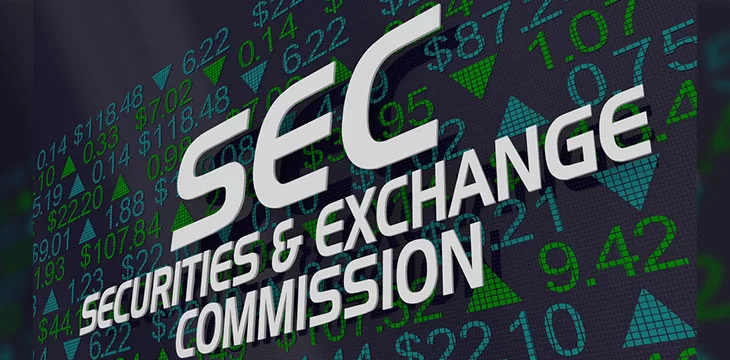|
Getting your Trinity Audio player ready...
|
The U.S. Securities and Exchange Commission (SEC) has elected not to appeal a court decision ordering the regulator to reconsider its denial of Grayscale’s exchange-traded-product (ETP) application, as it allowed the deadline for such a move to pass Friday. As a result, the SEC will now go back to the drawing board in deciding whether Grayscale’s ETP deserves the greenlight.
The SEC denied Grayscale’s proposed spot Bitcoin ETP—which would be the first of its kind—in June 2022 on the basis that it was not satisfied that the product was sufficiently designed to prevent fraudulent and manipulative acts and practices and to protect investors and the public interest. Those factors must necessarily be present for the SEC to grant a rule change under the Securities Exchange Act, which would enable the listing of the ETP.
Grayscale sued the SEC, arguing that the SEC had already approved ETPs that contained Bitcoin futures even though the futures market was functionally as resistant to manipulation as the spot market would be. This, Grayscale urged the court, amounted to arbitrary and capricious decision-making violating the Administration Procedure Act.
In August of 2023, the court granted Grayscale’s request, saying that it had been presented with “substantial evidence that Grayscale is similar, across the relevant regulatory factors, to BTC futures ETPs.”
“The Commission failed to adequately explain why it approved the listing of two BTC futures ETPs but not Grasycale‘s proposed BTC ETP. In the absence of a coherent explanation, this, unlike regulatory treatment of like products, is unlawful.”
The SEC had until October 13 to appeal the court order or accept that it must reconsider the Grayscale application afresh. The deadline has now passed.
Grayscale not out of the woods yet
The market appeared to take the SEC’s failure to appeal as a sign the securities regulator has accepted defeat and that ETP approval is imminent. BTC sparked up to $27,951.91 this morning, up from a low of $26,695.48 on Friday.
However, it’s not obvious that the SEC will throw in the towel at this stage. Much has changed since its initial denial of the Grayscale ETP in 2022, including within the SEC. 2023 has seen the regulator begin landmark enforcement actions against the two biggest exchanges in the industry, Coinbase (NASDAQ: COIN) and Binance, for illegally listing digital asset securities.
Though those charges do not name BTC as one of the securities, there are signs that the SEC’s position is shifting on that, too. The SEC has rightly made the question of centralization the key factor in deciding whether a digital asset project is a security or not; if a digital asset is issued and administered by those with centralized decision-making power to affect the asset and its underlying protocol, then it’s highly likely that those purchasing that asset had a reasonable expectation of profits contingent on the efforts of others—which would put it squarely within the ambit of the Howey test.
And since the first Grayscale denial in 2022, those in charge of BTC have provided yet more evidence that the protocol is highly centralized. When the BTC community caught NFT fever thanks to the emergence of Ordinals, which allow for the inscription of additional information onto individual “satoshis” or “sats,” the developers sprang into action to decide—collectively and amongst themselves—what their response should be.
Other assets that have been similarly thought of as ‘safe’ from securities classification have been deemed as securities since the initial rejection, too. Ethereum was often cited alongside BTC as an example of a digital asset that was not a security, but in March, was included in a New York Attorney General’s charges against exchange KuCoin as a security, with the wording explicitly pointing to the centralized management of Ethereum as a prime reason for the classification.
In between all of this is a climate of misuse of digital assets for illegal purposes, most recently exposed by the Israel-Hamas war.
However, the SEC is under increasing political pressure to force through a BTC ETP. At a September hearing of the House Financial Services Committee, lawmakers tabled a letter to SEC Chair Gary Gensler in which they insisted—borrowing language directly from Grayscale’s lawsuit—that the SEC was discriminating against spot Bitcoin products and that there was no basis for denying such a product. Gensler has remained steadfast in the face of political pressure throughout his career at the SEC, but whether that can be counted on in the long term remains to be seen.
The SEC has 45 days to consider the Grayscale application. It may extend that period up to 90 days—as it recently did with several other Bitcoin spot ETP applications. The first of those is set to come this month, which may provide insight into whether the SEC plans to justify its rejection on other bases or whether an ETP will finally get approval.
Watch: SEC Commissioner Hester Peirce on Blockchain Policy Matters

 03-04-2026
03-04-2026 




